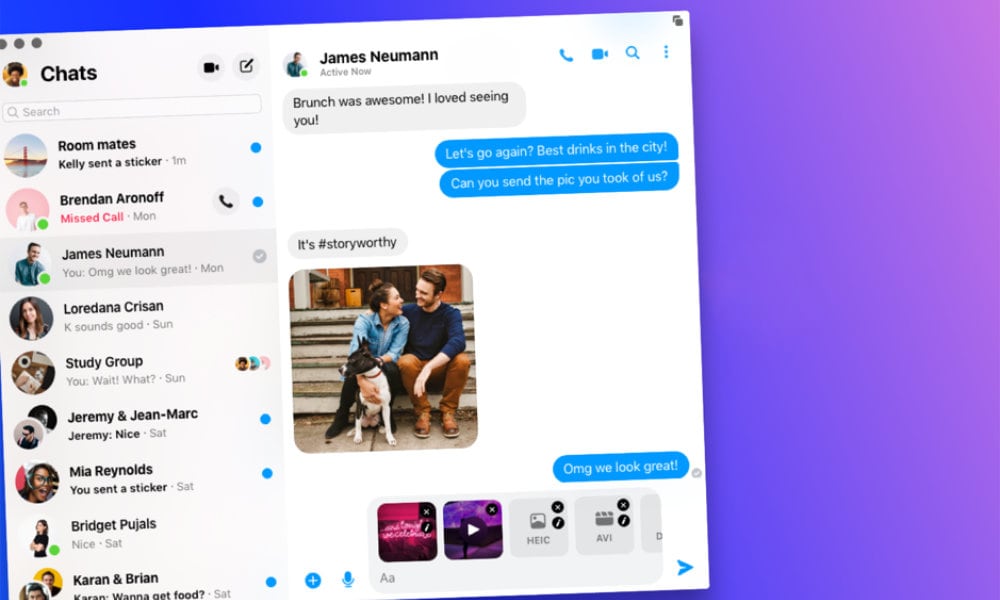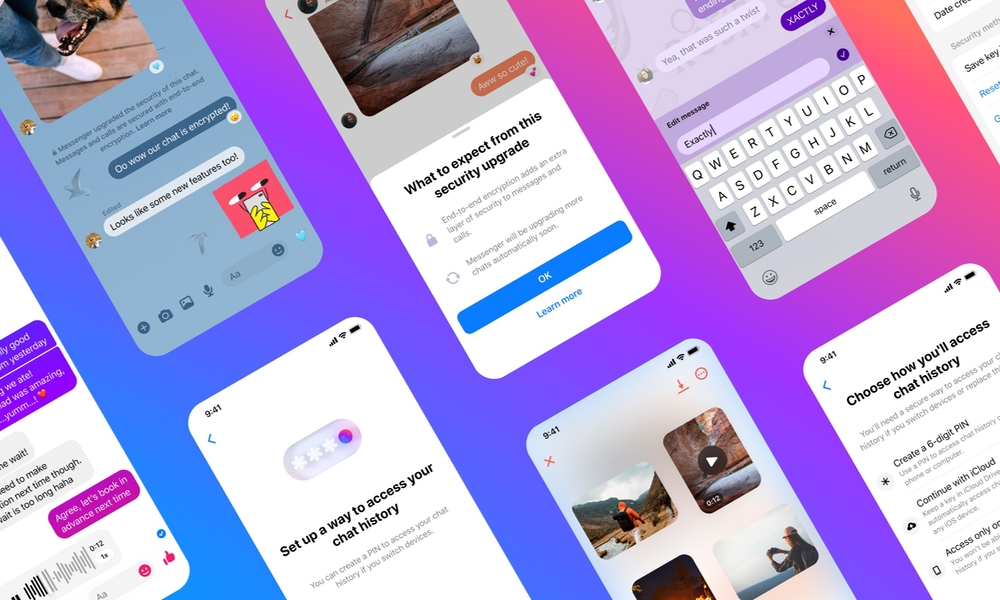Meta Pulls the Plug on Messenger for Mac

Toggle Dark Mode
If you’ve been relying on Meta’s Messenger app for macOS, it’s time to start looking for another solution. The social media giant has officially announced that it’s deprecating its desktop apps, including both the Mac and Windows versions.
The mobile version will live on, but Meta seems to be shifting towards a mobile-and-web-first strategy. That matches its Facebook app, which has always been web-only on the desktop, and of course, it’s how Google has handled its apps from the start.
If anything, desktop apps have always been an aberration for Meta. It’s a company that’s never fully embraced the iPad, even though Apple’s iPadOS is much closer to the iPhone from a software engineering perspective. While WhatsApp has moved onto the desktop, it’s also a service that Meta still treats at arm’s length from its core properties.
Messenger’s Short-Lived Desktop Experiment
The app that would eventually become Messenger pre-dates WhatsApp by nearly a year, having begun its life as Facebook Chat in 2008. It was built directly into Facebook in those days, but by 2011, the company had rolled it out as a standalone mobile app for iOS as “Facebook Messenger,” thanks to the acquisition of a small group-messaging startup called Beluga. Meanwhile, WhatsApp had launched as an independent company in 2009 and wouldn’t become part of the Facebook group until 2014.
During those early years, Meta (then still known as Facebook) toyed with a desktop Facebook Messenger client for Windows, but it never really made it out of a limited beta phase and was quietly discontinued in 2014. That’s around the same time that the company acquired WhatsApp, and the year that it removed messaging features from its flagship social media app, forcing users to download and install Facebook Messenger separately if they wanted to chat.
Meta’s Unified Messaging Vision
The two messaging apps ran in parallel for years, along with a third column in the form of Instagram, which implemented its own independent direct messaging system after Facebook acquired it in 2012.
That remained the status quo until 2019, when Facebook started laying the groundwork for its eventual rebranding to Meta. Facebook Messenger slowly became just Messenger, and Mark Zuckerberg announced plans to roll all three messaging platforms into a single, cross-platform solution. It ultimately succeeded in doing so with Instagram Direct, but WhatsApp has proven to be a more complicated story, and remains independent to this day.
Then there’s Threads, Instagram’s younger sibling, built in the hopes of attracting refugees escaping Twitter after its controversial change of ownership. Threads and Instagram have been joined at the hip from the start, so the recently-added Threads DMs are essentially Instagram Direct, part of Meta’s broader messaging ecosystem.
None of these other services offer desktop apps, and Meta never bothered to bring its Messenger desktop app into its grand unified vision. In fact, it arguably went in the other direction last year, replacing the desktop’s more stable and functional underpinnings with what was little more than a Progressive Web App in a fancy wrapper. That significant change only brought less reliability without any new features to make up for it.
Where Does Meta’s Messaging Strategy Go from Here?
In some ways, Meta’s decision to sunset its desktop Messenger app is really putting it out of its misery. The company was clearly unwilling to devote the engineering resources to maintain it on par with the rest of its messaging ecosystem, and having no app at all is arguably better than something that never felt quite fully baked.
The good news is that Messenger for Mac isn’t going away just yet. Meta’s announcement today is merely a heads-up that it’s coming soon. Users will be given 60 days’ notice in the Messenger app before it’s fully deprecated. After that time is up, they’ll be blocked from using the app and redirected to the appropriate website: Facebook.com for users with a Facebook account and Messenger.com for users who only use the messaging service without a Facebook account. Chat history from the desktop apps will be preserved as long as users have enabled secure storage and set up a PIN from their desktop app.
It’s hard to imagine Messenger’s disappearance as much more than an inconvenience for most Mac users. The web version isn’t going anywhere — and with luck, Meta can now focus on making that experience better. Still, it marks the quiet end of an experiment in bringing Meta’s mobile world back to the desktop.









